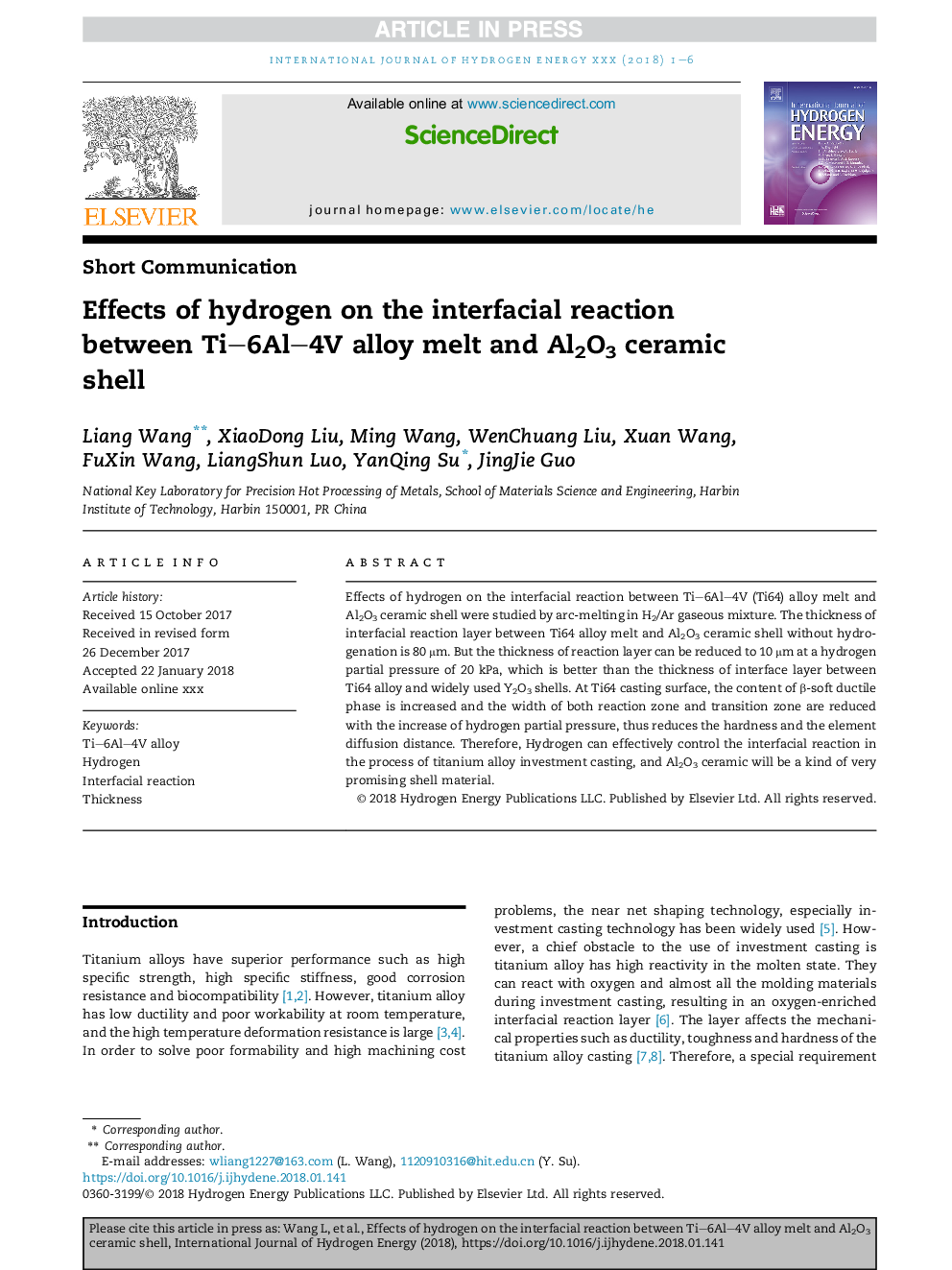| Article ID | Journal | Published Year | Pages | File Type |
|---|---|---|---|---|
| 7707370 | International Journal of Hydrogen Energy | 2018 | 6 Pages |
Abstract
Effects of hydrogen on the interfacial reaction between Ti6Al4V (Ti64) alloy melt and Al2O3 ceramic shell were studied by arc-melting in H2/Ar gaseous mixture. The thickness of interfacial reaction layer between Ti64 alloy melt and Al2O3 ceramic shell without hydrogenation is 80 μm. But the thickness of reaction layer can be reduced to 10 μm at a hydrogen partial pressure of 20 kPa, which is better than the thickness of interface layer between Ti64 alloy and widely used Y2O3 shells. At Ti64 casting surface, the content of β-soft ductile phase is increased and the width of both reaction zone and transition zone are reduced with the increase of hydrogen partial pressure, thus reduces the hardness and the element diffusion distance. Therefore, Hydrogen can effectively control the interfacial reaction in the process of titanium alloy investment casting, and Al2O3 ceramic will be a kind of very promising shell material.
Related Topics
Physical Sciences and Engineering
Chemistry
Electrochemistry
Authors
Liang Wang, XiaoDong Liu, Ming Wang, WenChuang Liu, Xuan Wang, FuXin Wang, LiangShun Luo, YanQing Su, JingJie Guo,
